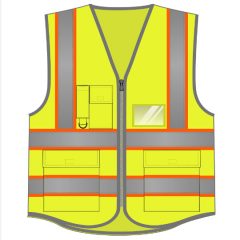One of the best ways that a cyclist has to improve his safety is to become much more localizable by using equipment with high visibility colors. Taylor, a textile company specializing in the design and manufacture of sportswear, expands its collection of Pluto jerseys and culottes with four new models available in fluorescent colors very striking and, more importantly, designed to bring more visibility to the cyclist.
In To-do Mountain Bike: High visibility colors for the new collection of culottes and jerseys Taylor Pluto
In addition to vibrant and highly visible colors, the Taylor Pluto collection stands out for its technical quality; this is high performance equipment for cyclists. The platoon jersey has a tight cut design, attached to the body, with a full zip, collar and sleeves to the elbows. It is manufactured with Drying fabric in its front part, of excellent perspiration; reflective fabric in the sleeves, micro perforated and aerodynamic; And Ultra Violet-Mesh fabric on the sides and back, resistant to UV rays and optimized to avoid chafing.
The Taylor Pluto set is the perfect complement to the collection’s jersey (or vice versa). It is the most advanced garment in the catalog of the brand, with the fabric that gives it the most innovative feature: present on the sides and dorsal of the culottes, Pluto fabric ensures the necessary compression of the muscles involved in pedaling, oxygenating and Avoiding rebound and fatigue concentration, in addition to weighing 30% less than other knitwear. There is also a Tosspot TM EVO harness with perforated hat and a 10 millimeter thickness, reflective pattern on the culotte’s cuffs, micro perforated flat straps, and a lower shot to facilitate the cyclist’s urination.
The high-visibility Taylor Pluto collection hits the market with four colors to choose from: Pink Fluor (Pink), Red Passion (Red), White Pearl (White) and Yellow Fluor (Yellow). Available in sizes XS, S, M and L, the recommended price of garments is € 84.99 for the jersey and € 99.99 for the culottes.
